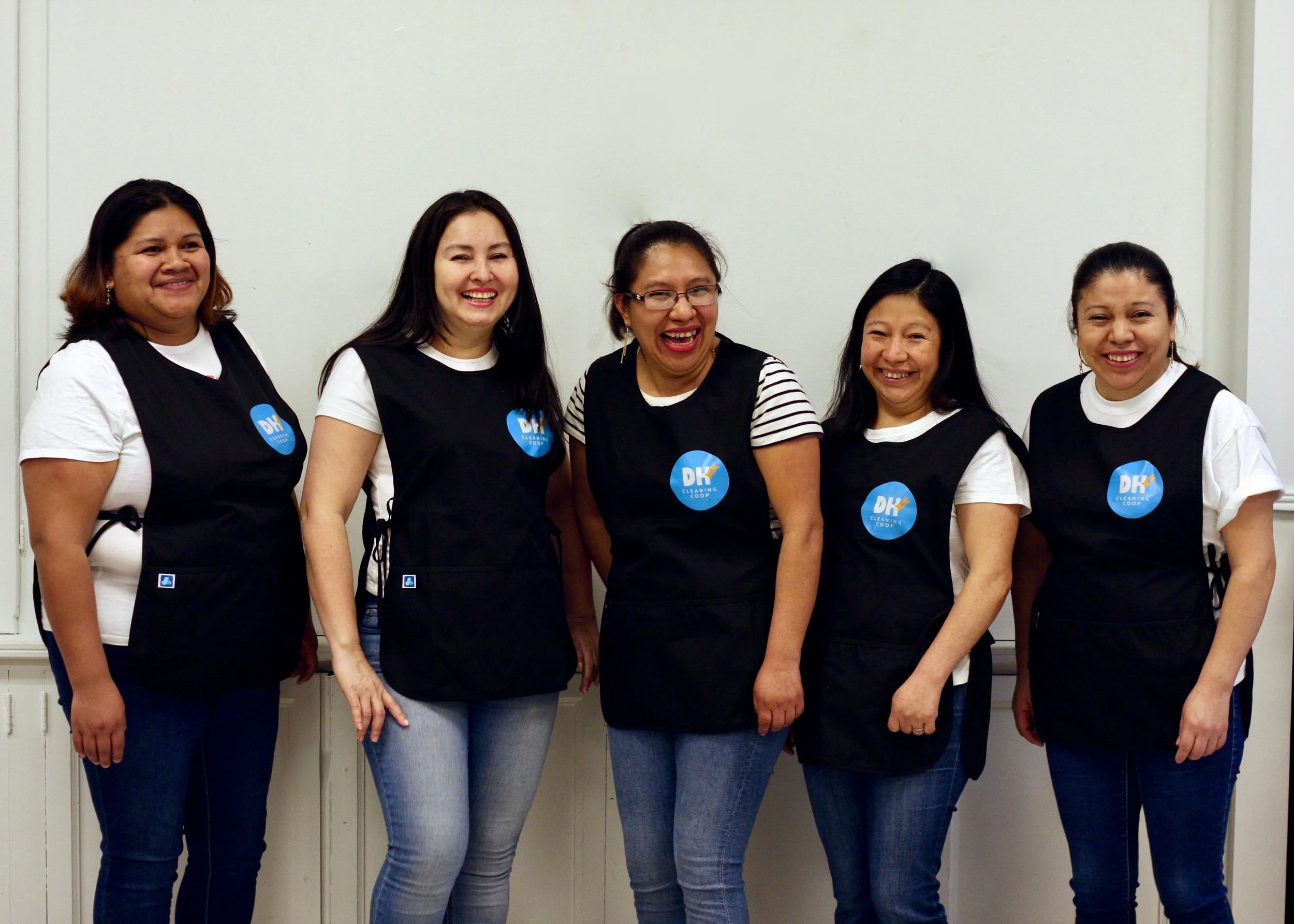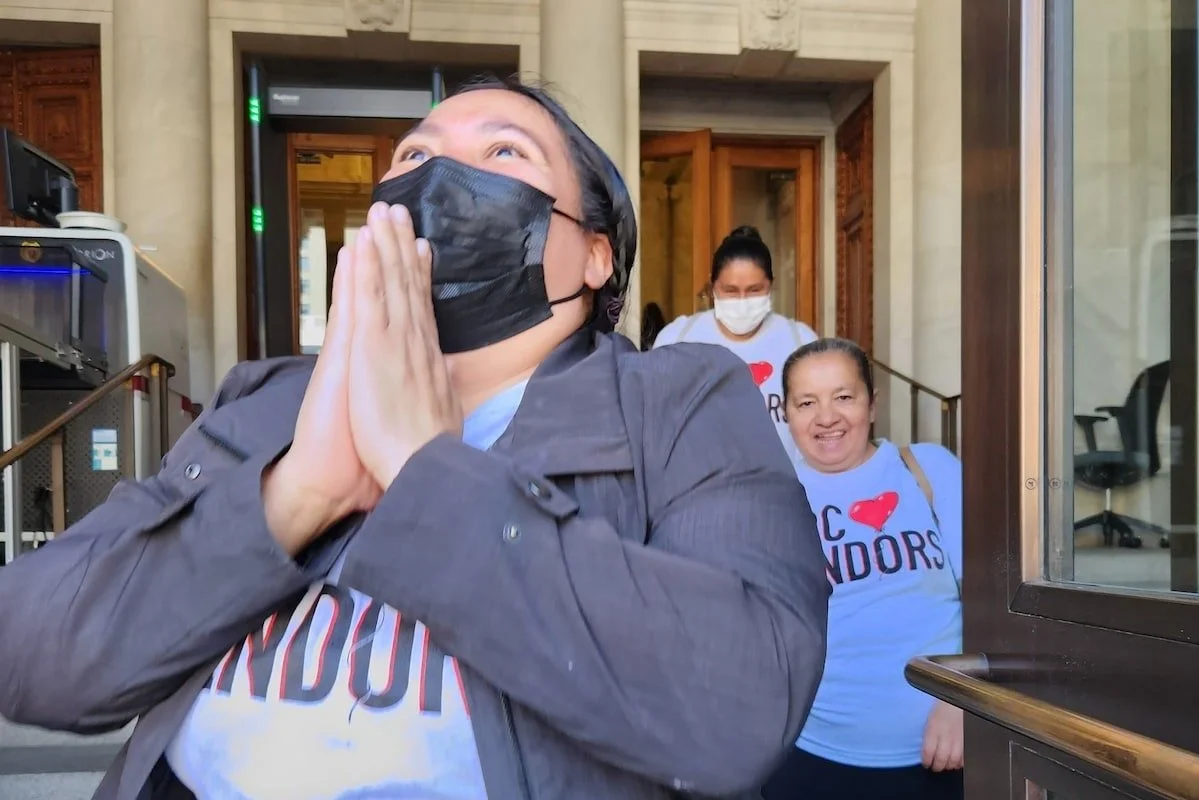History
After the 2016 US Presidential election, staff at Luther Place Memorial Church in downtown Washington, DC launched a listening campaign with the goal of hearing from neighbors, particularly those most impacted by capitalism, in order to build community and learn what projects we might take on together.
At listening sessions with immigrant neighbors, we heard stories about the totality of their lives, along with their hopes for their families, workplaces, and community. People were experiencing wage theft and profound abuse from their bosses. They dreamed about being in control of their hours, wages, and conditions of their work.
In response, we formed our first cooperative, Dulce Hogar Cleaning Cooperative, which supported working mothers in the community to launch their own worker-owned business, and have more control over their wages, schedule, and training. Dulce Hogar has been operational since 2019 and since the co-op’s launch has paid in the 90% percentile of wages for house cleaners in the region.
Inspired by this success and committed to a broad vision of worker ownership in the DC region, Beloved Community Incubator launched in 2018 as a separate non-profit focused on incubating and supporting cooperatives.
Since 2019, we worked closely with street vendors to organize a successful campaign to decriminalize street vending in DC. After years of organizing, The Street Vendor Advancement Amendment Act passed the DC Council unanimously in April 2023. BCI continues to work with vendors to secure funding for cart repairs, licenses, and outstanding fees, and to ensure the law is implemented fairly and accessibly for all vendors.
When the COVID-19 pandemic and economic shutdowns began in early 2020, BCI reached out to workers and worker-owners to listen to their needs and concerns, and in response we created the BCI Network, which provides back-end technical assistance and legal support for more than 15 worker-owned cooperatives and solidarity economy organizations in the DC Metro region.
In 2020 we signed on as one of the lead organizers of the Excluded Worker Campaign, which secured more than $75 million in cash assistance for workers and worker-owners excluded from federal stimulus funds and other programs.
In 2022, when Texas Governor Abbott began busing asylum seekers to DC from the border as part of a racist and cruel publicity stunt, BCI was part of the community-wide mutual aid response that has supported more than 1,500 migrants who have chosen to make the DC area their home, and served as a fiscal sponsor for the Migrant Solidarity Mutual Aid Network.
After hearing from local cooperatives that access to capital was one of the major barriers to launching, sustaining, and growing cooperative businesses, we launched the DC Solidarity Economy Loan Fund (DC SELF) at the end of 2022. In partnership with SEED Commons, DC SELF provides non-extractive financing to DC-area worker-owned cooperatives, with a goal of providing $1 million in loans to local cooperatives by 2025.
In 2023, BCI joined The New Economy Coalition, a national network of more than 200 organizations working to build local solidarity economies in the US, as part of larger global movements toward liberation and justice. Our work of building a regional and national solidarity economy continues to be guided by listening and responding to the needs of poor and working class workers and worker-owners of color in the DC region, who are most impacted by the extraction of capitalism.



